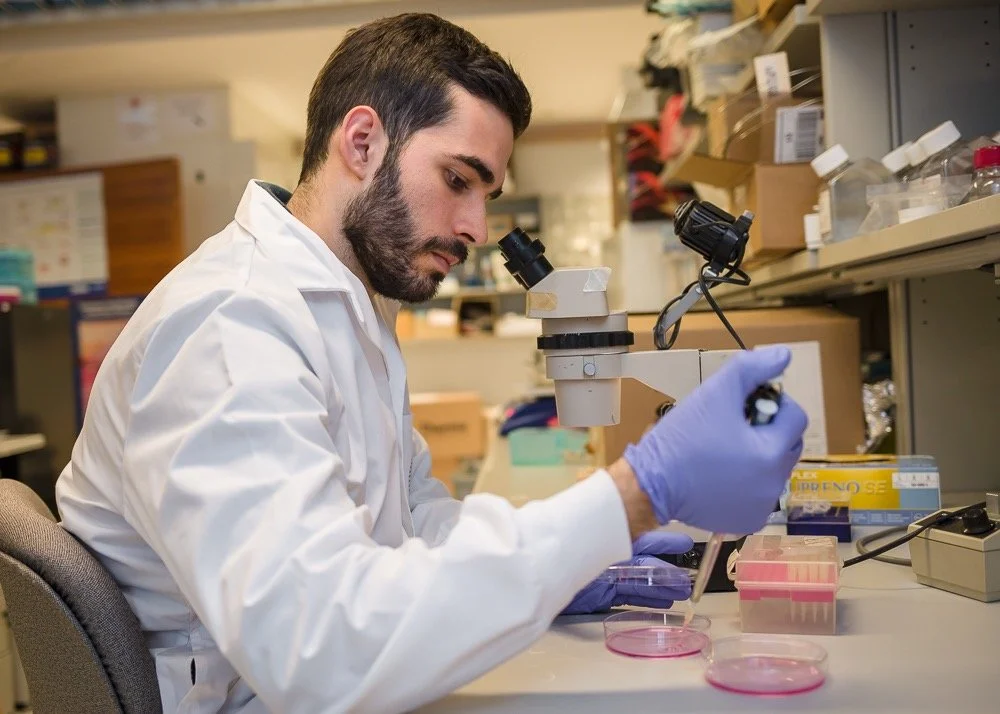Alexander Vlahos, Ph.D.
Alexander is currently an Assistant Professor at Georgia Institute of Technology in the Department of Biomedical Engineering. He completed his PhD in Biomedical Engineering with Dr. Michael Sefton at the University of Toronto. Using principles in tissue engineering, regenerative medicine, and biomaterials, he developed platforms to vascularize the subcutaneous space for islet transplantation in pre-clinical animal models. In addition, he developed a “bottom-up” approach to creating pseudo-islets constructs with tuneable properties using disaggregated islet cells, exogenous vascular support cells and a collagen scaffold.
Following these accomplishments, he realized that any further improvement for cell transplantation would rely on the ability to program intercellular signalling for immune modulation. Therefore, for my postdoctoral studies he transitioned to mammalian synthetic biology under the supervision of Dr. Xiaojing Gao at Stanford University in the Department of Chemical Engineering. His goal is to apply synthetic protein circuits to engineer programmable sense-and-respond cells and control intercellular interactions for immune modulation. To expand the protein circuit toolkit, he engineered a generalizable design called Retained Endoplasmic Cleavable Secretion (RELEASE) to control the secretion or surface display of any tagged protein of interest.
His lab focuses on establishing synthetic protein circuits as a platform to mechanistically study complex intercellular interactions of multicellular systems, such as the immune system. The ensuing circuits would help probe intercellular signalling pathways for basic research and modulate mammalian cell behaviour to improve cell transplantation, the treatment of autoimmune diseases, and cancer immunotherapies.
Outside of the lab, he enjoys cooking, spending time with the family, collecting one piece cards, and playing with his cat Maple!

